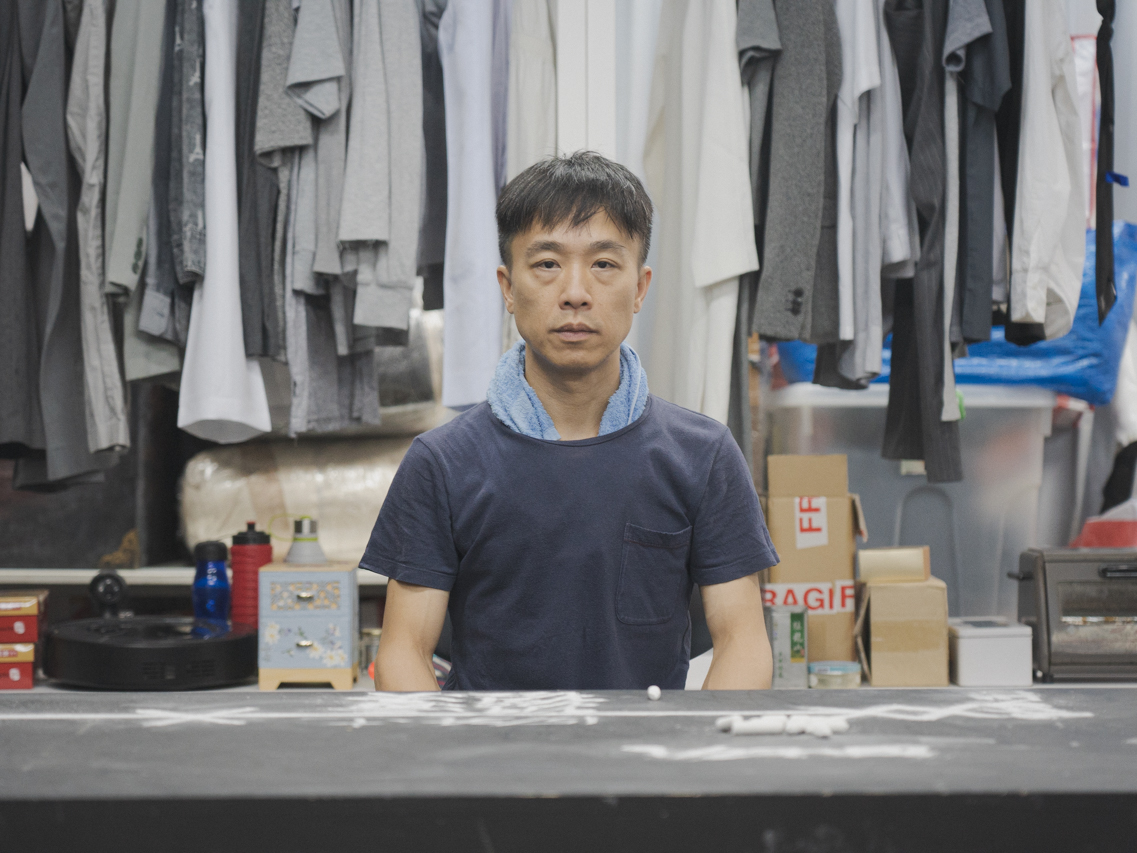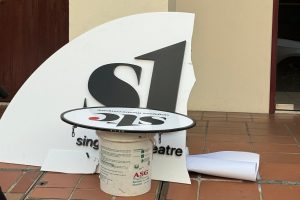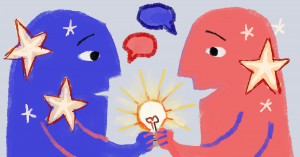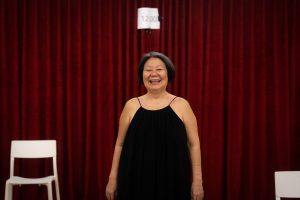Our judicial system defies common understanding. Complex expressions of patriotism are attacked in parliament. Efforts to save our planet from climate devastation are derided.
As individuals, we Singaporeans spend so much time at work that we have one of the highest burnout rates in the world. To fill the void that this burnout has created, we turn to material goods and lifestyle experiences. The latest noise-cancelling earphones from Sony. Halloween Horror Nights.
But after the initial burst of sweetness, they, like candy, dissipate into the flavour of guilt and regret. No matter. Tomorrow we will work harder, stuff more money into that ever-growing void.
Life is so great we can’t help but conclude we lead a meaningless existence in an indifferent society.
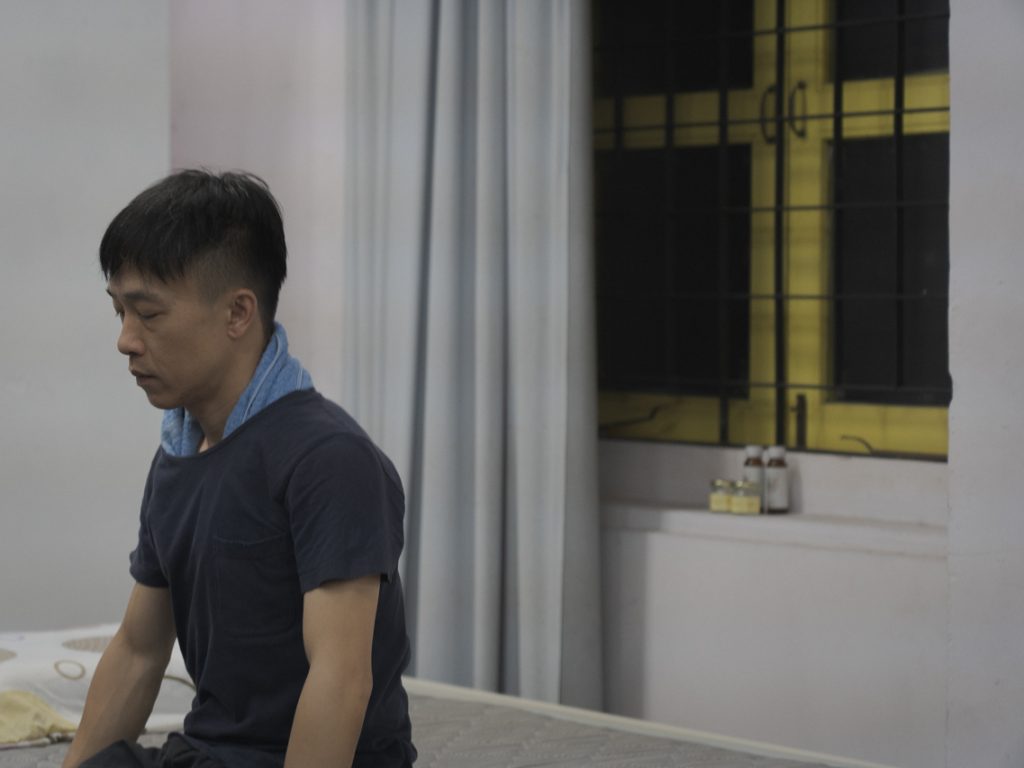
Nope, most of us just want to be distracted from ourselves.
Isabelle Yee, project manager of The Finger Players’ new production, A Fiend’s Diary, admits that she is guilty as charged.
“I’m really more focused on getting through the day and looking forward to the next day. I don’t think so much about having a bigger sense of purpose.”
This is a bit ironic, considering that Oliver Chong, the playwright-actor-director of A Fiend’s Diary, is hoping that his play will compel audience members to start thinking about the purpose of their life: why they are alive, what is the meaning of their freedom, how their relationships with the people around them function.
(Isabelle protests that she is “too focused on running the administrative side of this production” to devote so much time to philosophising.)
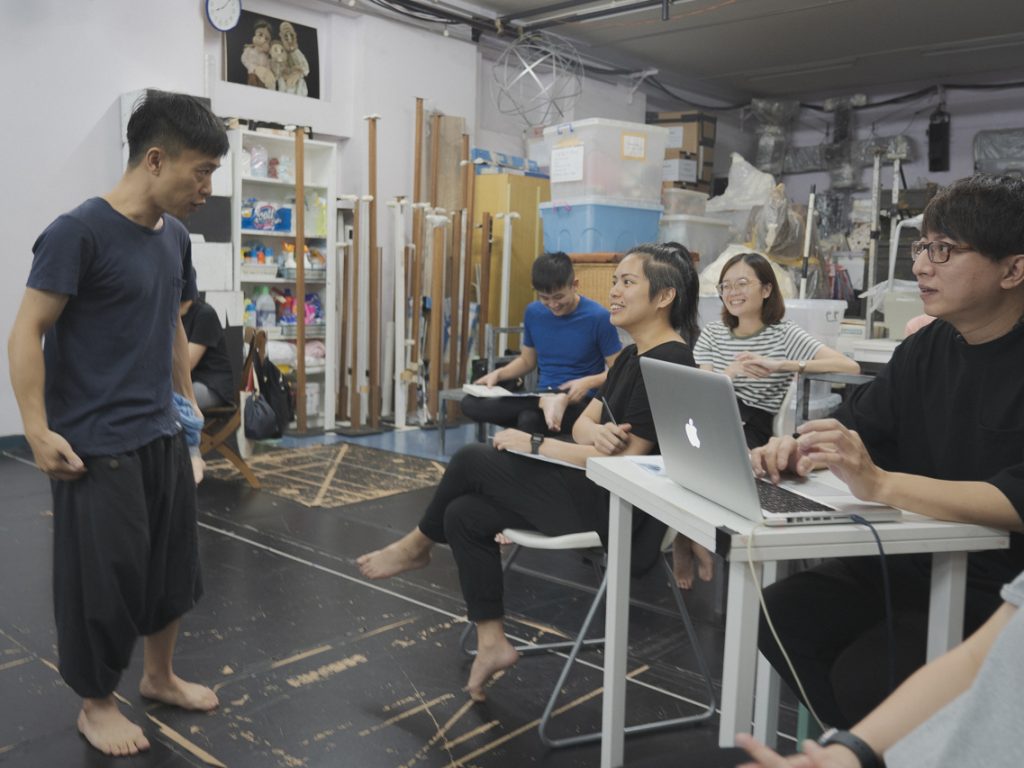
It’s not a very optimistic conclusion. But Oliver is not directly espousing the views of his play. He doesn’t think that Singaporeans should stop going to work and embrace nihilism, or sit by idly and let the changing climate roast us. In fact, that’s contrary to what he wants his play to achieve.
“Was it Sartre who said that ‘you are never alive if you are not educated’?” he asks. (I can’t find the exact quotation, so I offer Socrates’ ‘the unexamined life is not worth living’ in lieu of it.)
And regardless of what conclusion you reach after your examination—that your purpose in life is to rally for the climate a la Greta Thunberg, or that there is, ultimately, nothing significant humans can do in the grand scheme of the cosmos—they’re all fine. There’s no goal that is qualitatively better than another; the significance lies in the act of reflecting on your existence.
“At least you think about your existence as opposed to going through your existence blind, or thinking that the meaning of life lies only in materials,” Oliver says.
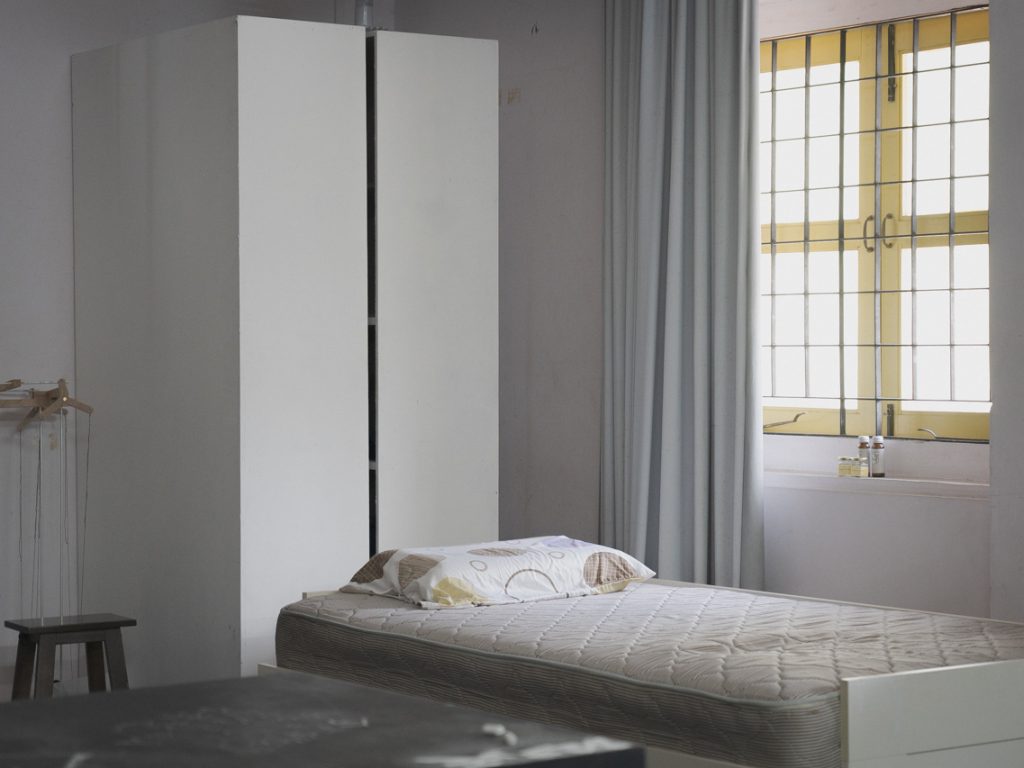
“It could be the darkest period in my life. Things that I lost. People whom I lost. I kept questioning what’s the purpose of life, of theatre. And that made me seek solace in Sartre, Heidegger, de Beauvoir, Nietzsche …”
(The authors Oliver mentions are philosophers who, very generally speaking, are associated with existentialism. A fundamental tenet of this philosophical movement is that we, as individuals, have to make our own sense of a world that is meaningless.)
“Life is meaningless,” Oliver declares.
Eventually, after spending days inhabiting these books, Oliver realised—or decided—that to him there is no point to life. Yet in a paradoxical twist, by realising that life is an empty vessel, he could therefore fill it with his beverage of choice, so to speak.
“So the only way to carry on living this life is to give it meaning. [Which is] to press on and … keep doing my art. So I just focus on the work that I am doing, that I have to do, and give it all. So much so that I’m prepared to give everything, so much that I can die for each project.”
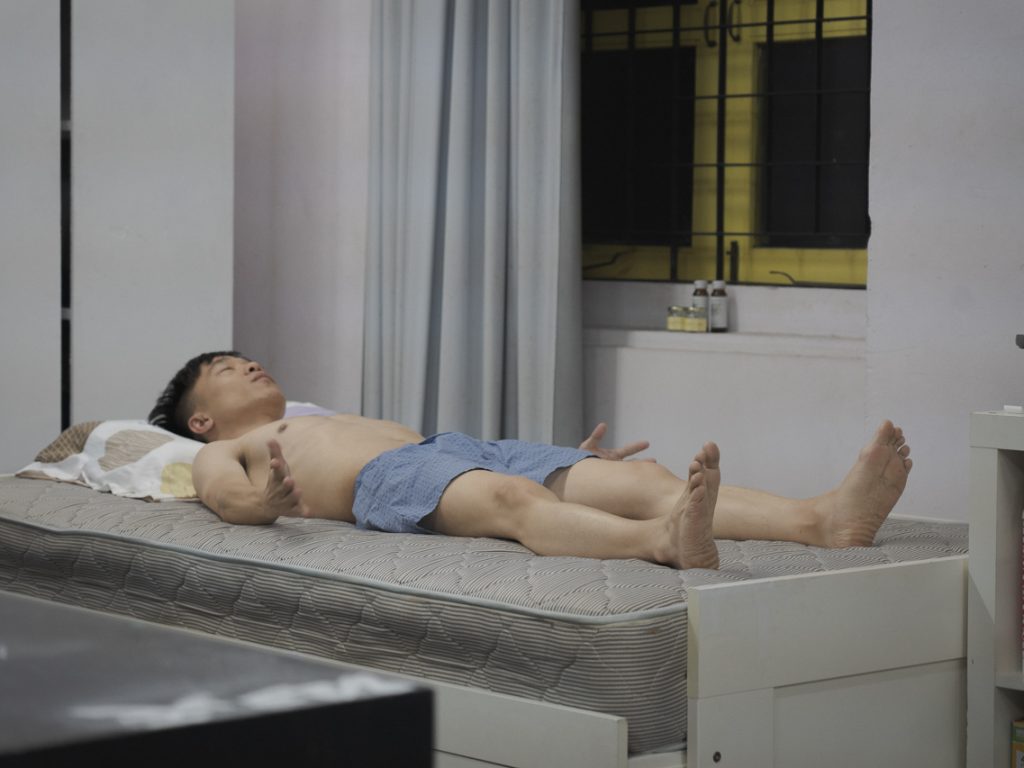
I let myself be pulled by gravity: I show up to school each day and hand in what is required of me; I turn up at work each day, write my daily, self-imposed quota of words, and return home to await the next, same day.
I read about how increasingly draconian measures are being imposed by governments, about inequality, about artists being made scapegoats.
I get furious, then tepid, then inured. After all, I am but a powerless individual. What can I do?
Society is indifferent, but so am I.
It’s not a bad life, as a colleague says. You do your job, go home, play some DOTA. You have enough money to buy meals, sometimes even to splurge on sushi. Nothing to complain about, but nothing to feel inspired by, either.
After chatting with Oliver about his play, I still find life meaningless. In fact, this sense of existentialism is reinforced after our conversation. I did, however, begin thinking about how I could introduce meaning into my life. Maybe I could pursue creative works more? Help animals? Become a tree?
Am I happier or more unhappy now that I’ve begun paying more attention to the contours of my life?
I don’t know, really.
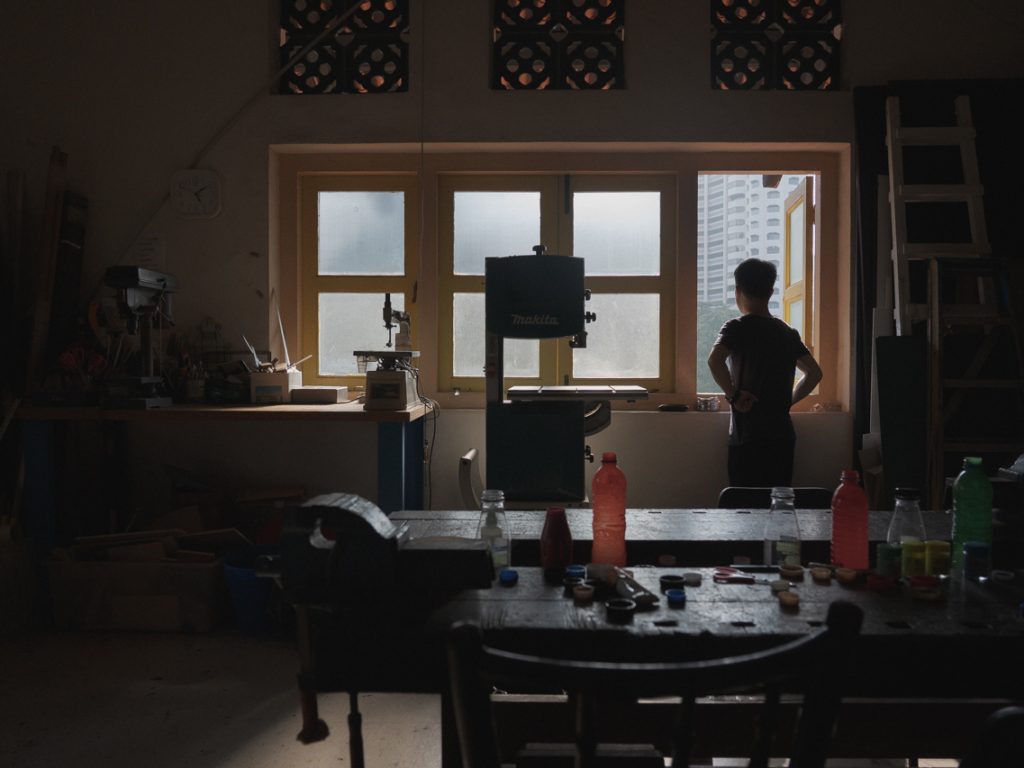
In any case, there can’t be an answer to a profound question like, “What is the meaning of life?”
Moreover, Oliver quips, “I don’t think it’s an artist’s responsibility to provide answers. We are not politicians. An artist’s responsibility is just to ask questions or at least encourage audiences to question, to think.”
Doesn’t it seem odd, though, that it takes an artist to make us think about the question that should have been on our minds the moment we picked up language, just as it takes a child to see through our capitalism-induced fog, or a high-GPA student to illustrate the inequalities in society?
And, at the end of the day, does anything matter, when we’re all going to die anyway?
Ellison Tan, co-artistic director of The Finger Players, answers my incessant questions: “I don’t think [A Fiend’s Diary] gave me an answer. But it offered a very salient opinion that I can identify with. And I guess in that way, going back to Oliver’s point about being lonely, it makes me feel less lonely.
“That, oh, this person gets it.’”
How do you make sense of a senseless world? Tell us at community@ricemedia.co

